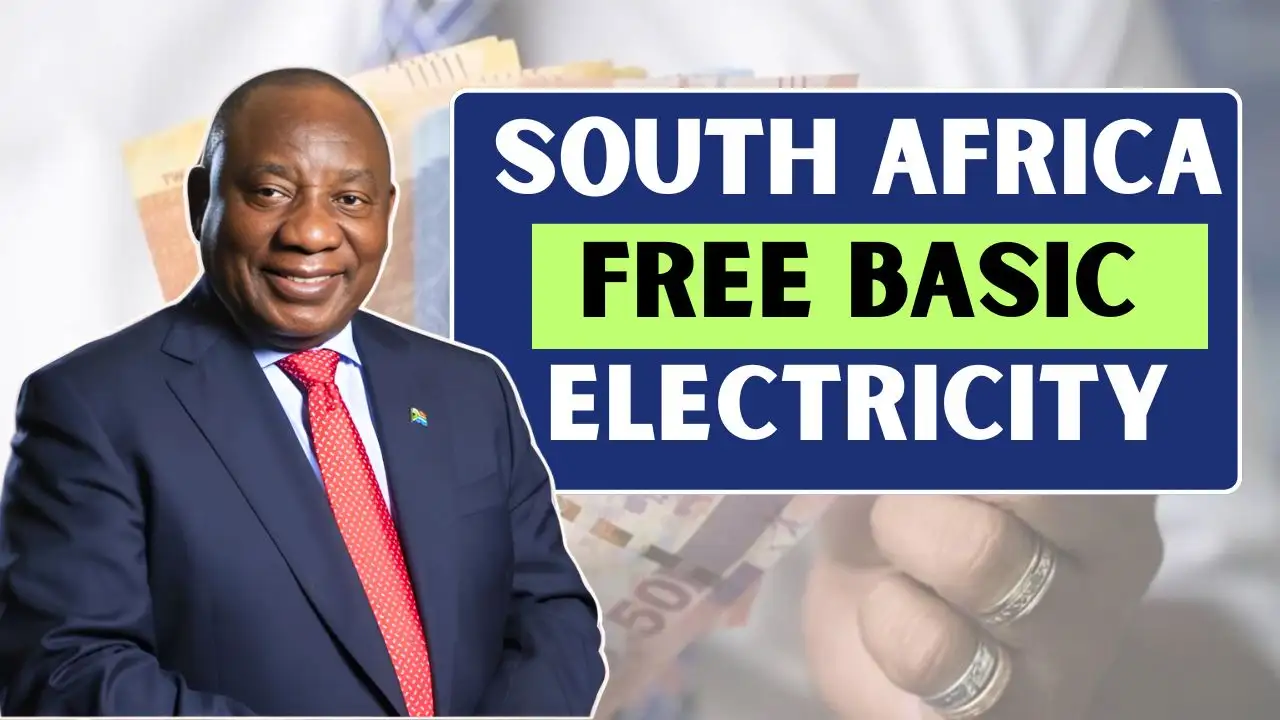As the cost of electricity continues to rise and load-shedding remains a reality for many South Africans, the government’s Free Basic Electricity (FBE) program continues to offer much-needed relief to low-income households. In 2025, the FBE policy has been renewed and expanded in some municipalities, ensuring that qualifying citizens receive a set amount of electricity units each month free of charge.
The Free Basic Electricity initiative is part of South Africa’s broader effort to improve energy access, alleviate poverty, and reduce household costs for vulnerable citizens. It provides a monthly allocation of 50 to 60 kWh of electricity to qualifying households, enough to power essential appliances like lights, fridges, and kettles.
What Is Free Basic Electricity (FBE)?
Free Basic Electricity is a government-funded service introduced in 2003 as part of South Africa’s Free Basic Services policy. It provides a monthly allowance of electricity at no cost to qualifying households. The program is managed by local municipalities in partnership with Eskom, and is primarily aimed at indigent households those with limited income and minimal access to services.
In 2025, the program has seen increased attention as energy prices have surged. Some municipalities are now offering improved access or raising awareness to ensure more eligible households benefit from the scheme.
Who Qualifies for Free Basic Electricity in 2025?
Eligibility is determined by income levels, property value, and registration on the local indigent support database. While criteria vary slightly between municipalities, households generally need to:
- Have a total monthly income below a specified threshold (set by the municipality)
- Reside in a property valued under R150,000–R200,000
- Be registered on the municipal indigent support program
- Use prepaid electricity meters in most cases
Rural and informal settlement households with limited access to grid power may also qualify for Free Basic Alternative Energy, such as paraffin or solar energy support, where applicable.
Free Basic Electricity Benefits in 2025 by Provider
| Municipality / Provider | Monthly Free Units | Type of Energy Meter | Indigent Register Required | Additional Notes |
|---|---|---|---|---|
| Eskom Direct Supply | 50–60 kWh | Prepaid | Yes | Must apply via Eskom FBE system |
| Johannesburg City Power | 50 kWh | Prepaid / Conventional | Yes | Linked to property valuation |
| eThekwini Municipality | 60 kWh | Prepaid | Yes | Must reapply annually |
| Tshwane Municipality | 50 kWh | Prepaid | Yes | Extra support for RDP households |
| Cape Town Municipality | 60 kWh | Prepaid | Yes | Proof of income required annually |
How to Apply for Free Basic Electricity
To receive Free Basic Electricity in 2025, eligible households must register with their local municipality’s indigent support program. This typically involves filling out an application form, providing supporting documents such as:
- South African ID
- Proof of income (such as a SASSA letter or payslip)
- Municipal account or proof of residence
- Prepaid meter number
Once approved, the household will be linked to the FBE system and begin receiving free electricity automatically each month. Those using Eskom as their service provider can also dial 130869# to claim free units or apply online at the Eskom website.
Things to Remember
If you don’t collect your FBE units in a given month, they do not roll over to the next. Also, municipalities require annual revalidation of indigent status, so households must stay up to date to avoid being removed from the list. Households that no longer qualify due to improved income or changed circumstances will be exited from the program.
Conclusion:
The Free Basic Electricity program in 2025 continues to be a lifeline for millions of South Africans. While the monthly allowance may not cover all household electricity needs, it helps ease the financial burden for those struggling the most. With better awareness and access, more families can benefit all it takes is checking eligibility and applying through the right channels.




